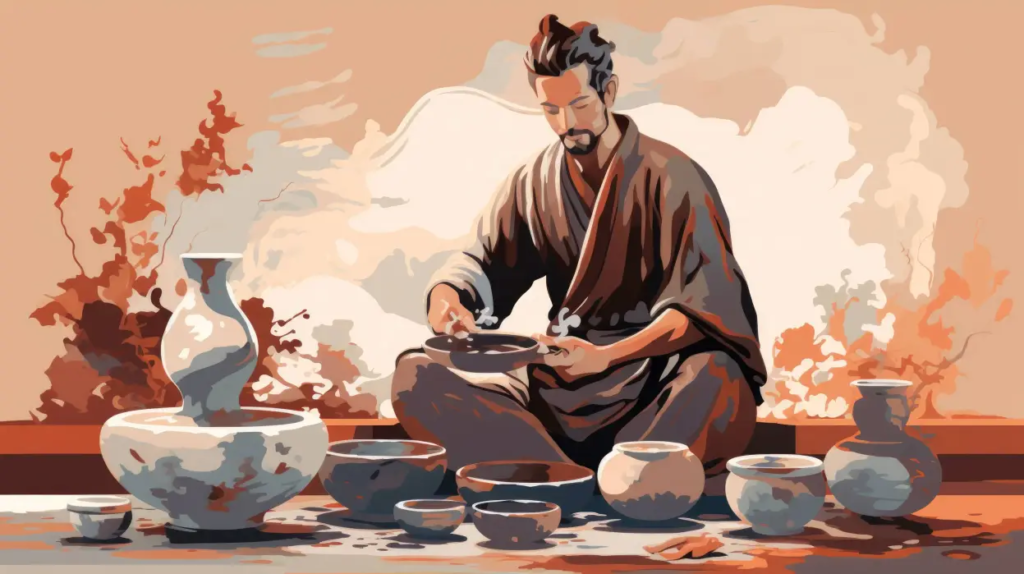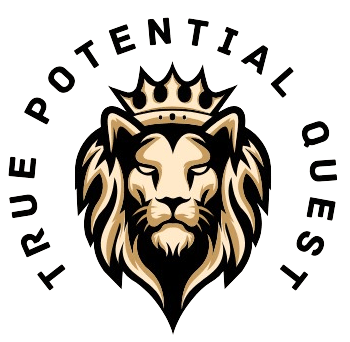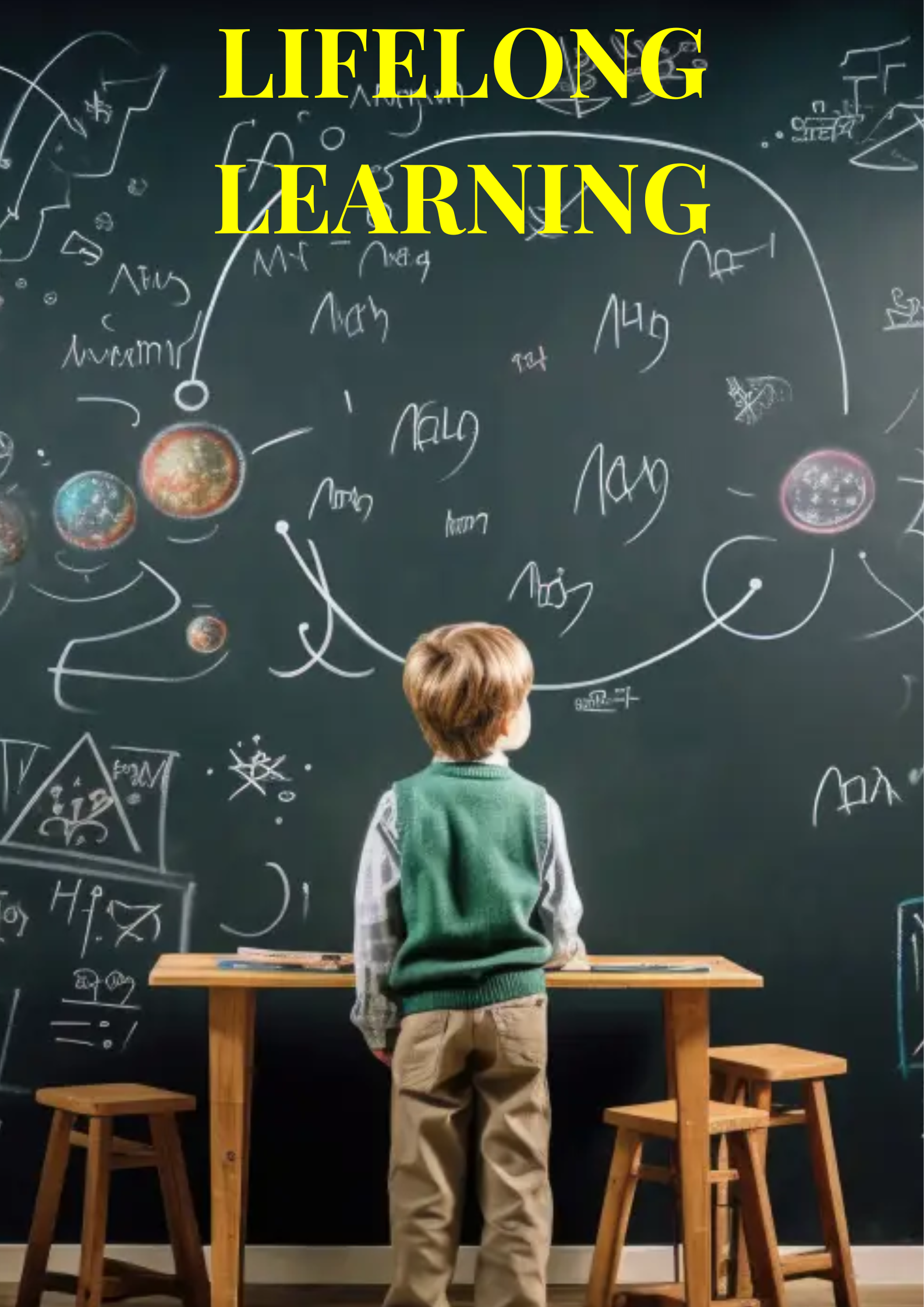Jump To Section
Importance of Lifelong Learning
Lifelong learning has been revered throughout history as a cornerstone of personal growth and societal advancement. In ancient India, the great centres of learning such as Nalanda and Takshila University stood as beacons of knowledge, attracting scholars from far and wide. Drawing from the wisdom of ancient Indian scholars like Chanakya, this article explores the profound importance of lifelong learning.

Continuous Growth and Adaptation:
Lifelong learning is essential for continuous personal and professional growth. As Chanakya famously said, “Learning is a treasure that will follow its owner everywhere.” Just as a tree grows and adapts to its environment, so too must individuals continuously acquire new knowledge and skills to thrive in an ever-changing world.
Check This Blog: Crafting a Habit Blueprint: 15 Incredible Steps To Building Your Best Self
Lifelong learning has been revered throughout history as a cornerstone of personal growth and societal advancement. In ancient India, the great centres of learning such as Nalanda and Takshila University stood as beacons of knowledge, attracting scholars from far and wide.

Ancient Indian scholars recognized the importance of lifelong learning as a path to enlightenment and personal development. Chanakya, known for his seminal work, the Arthashastra, emphasized the value of education in shaping individuals and societies. He believed that knowledge was the key to unlocking one’s potential and achieving success in life. Similarly, scholars at Nalanda and Takshila understood the transformative power of lifelong learning. They studied a wide range of subjects, from philosophy and mathematics to astronomy and medicine, seeking to deepen their understanding of the world.
The scholars of ancient India viewed lifelong learning not merely as an academic pursuit but as a way of life. They believed that education was essential for cultivating virtues such as wisdom, compassion, and integrity. By immersing themselves in the pursuit of knowledge, they aimed to lead meaningful and purposeful lives, contributing to the betterment of society.
Furthermore, ancient Indian scholars emphasized the importance of passing on knowledge to future generations. They recognized that education was not only a personal endeavour but also a collective responsibility. Through teaching and mentorship, they sought to inspire and empower others to continue the pursuit of knowledge.
The scholars of ancient India understood that lifelong learning was essential for personal growth, societal progress, and spiritual enlightenment. Their teachings continue to resonate today, reminding us of the timeless importance of education in shaping individuals and shaping the world around us.
Preservation of Tradition and Culture:
Lifelong learning plays a crucial role in the preservation of tradition and culture. Throughout history, cultures around the world have passed down their traditions, customs, and values through generations. Lifelong learning ensures that these rich cultural legacies endure and thrive in the modern world.
Check This Blog: Beyond Success: 5 Ways To Crafting an Amazing Meaningful Life Filled with Purpose
One way in which lifelong learning contributes to the preservation of tradition and culture is by keeping ancient practices and knowledge alive. Many cultures have traditional art forms, crafts, rituals, and languages that are at risk of being lost over time. By engaging in lifelong learning, individuals can study and practice these traditions, ensuring that they are passed down to future generations. For example, in India, traditional arts like Bharatanatyam, Kathak, and Carnatic music are preserved through dedicated training and study.

Moreover, lifelong learning allows people to deepen their understanding of cultural heritage. By studying history, literature, folklore, and mythology, individuals gain insight into the values, beliefs, and customs of their ancestors. This knowledge fosters a sense of connection to one’s cultural roots and identity. For instance, in Japan, the study of traditional tea ceremonies, flower arranging (ikebana), and calligraphy (shodo) is deeply rooted in the country’s cultural history.
Furthermore, lifelong learning promotes cultural exchange and understanding. Through exposure to different cultures, languages, and perspectives, individuals develop empathy and appreciation for diversity. This fosters mutual respect and cooperation among people from different backgrounds. For example, language learning programs and cultural exchange initiatives allow individuals to immerse themselves in foreign cultures, promoting cross-cultural understanding and communication.
Lifelong learning is essential for the preservation of tradition and culture. By studying and practising traditional arts, deepening understanding of cultural heritage, and fostering cross-cultural exchange, individuals contribute to the rich tapestry of human civilization, ensuring that our traditions and cultures endure for generations to come.
Innovation and Creativity:
Lifelong learning is a catalyst for innovation and creativity. Throughout history, scholars have engaged in critical thinking, debate, and exploration, pushing the boundaries of knowledge and contributing to advancements in various fields.
Check This Blog: Boosting Confidence: 7 Unbelievable Strategies To Reclaim Confidence
One of the key aspects of lifelong learning is its emphasis on critical thinking and problem-solving. Scholars constantly question existing knowledge, seeking new perspectives and solutions to complex issues. This culture of curiosity and exploration fosters innovation by encouraging individuals to think outside the box and challenge the status quo.

Moreover, lifelong learning promotes interdisciplinary approaches to problem-solving. Scholars from different fields collaborate, bringing together diverse perspectives and expertise to tackle complex challenges. This interdisciplinary approach often leads to breakthroughs and innovations that would not have been possible within the confines of a single discipline.
Furthermore, lifelong learning encourages experimentation and risk-taking. Scholars are not afraid to fail, seeing setbacks as opportunities for growth and learning. This mindset fosters a culture of innovation where new ideas are welcomed and tested, leading to the development of novel solutions and technologies.
For example, the Renaissance period in Europe was marked by a flourishing of knowledge and creativity, driven by scholars who embraced lifelong learning. Artists, scientists, and philosophers like Leonardo da Vinci, Galileo Galilei, and Michelangelo pursued knowledge across various disciplines, leading to groundbreaking discoveries and artistic masterpieces.
In today’s rapidly changing world, lifelong learning is more important than ever. By nurturing a culture of curiosity, critical thinking, and interdisciplinary collaboration, lifelong learning fuels innovation and drives progress, leading to a brighter and more prosperous future for all.
Wisdom and Insight:
Lifelong learning leads to the accumulation of wisdom and insight. Ancient Indian texts such as the Vedas and Upanishads emphasize the importance of seeking knowledge and understanding the deeper truths of life. As you engage in lifelong learning, you gain not only factual knowledge but also wisdom that guides your actions and decisions.
Check This Blog: Unveiling Your Authentic Self Blue Print: 4 Eye Openers For Self Growth
In ancient India, scholars and sages devoted their lives to the pursuit of knowledge, delving into profound philosophical inquiries and spiritual practices. They sought to understand the nature of existence, the purpose of life, and the interconnectedness of all things. Through their teachings, they imparted timeless wisdom that continues to inspire and enlighten.

As a lifelong learner, you follow in the footsteps of these ancient sages, seeking to deepen your understanding of the world and yourself. Through study, reflection, and contemplation, you gain insights that go beyond mere facts and figures. This wisdom shapes your perspective on life, guiding you in making ethical choices, fostering compassion for others, and finding meaning and fulfilment in your journey.
Adaptation to Change:
In today’s fast-paced world, the ability to adapt to change is more important than ever. Chanakya’s teachings emphasize the importance of flexibility and adaptability. Lifelong learners are better equipped to navigate uncertain times, as they possess the skills and mindset to embrace change and turn challenges into opportunities.
As you engage in lifelong learning, you understand that change is inevitable and that adaptation is key to survival and success. Chanakya, the ancient Indian philosopher, strategist, and economist, stressed the importance of being adaptable in his treatise, the Arthashastra. He believed that those who could adjust their strategies and approaches according to changing circumstances would thrive in any situation.
Lifelong learners embody this principle by constantly seeking new knowledge and skills that enable them to adapt to evolving environments. They understand that the world is constantly changing, and that to stay relevant, they must be willing to learn, unlearn, and relearn.
Moreover, lifelong learners view challenges as opportunities for growth and innovation. Instead of being intimidated by change, they embrace it as a chance to explore new possibilities and expand their horizons. By cultivating a mindset of flexibility and adaptability, they are able to overcome obstacles and achieve their goals.
Lifelong learning empowers you to embrace change and navigate the complexities of the modern world with confidence and resilience. By following Chanakya’s teachings and adopting a flexible mindset, you can turn challenges into opportunities and thrive in any situation.
Personal Fulfillment and Well-Being:
Lifelong learning brings a sense of personal fulfillment and well-being. Just as students at Nalanda found joy in the pursuit of knowledge, modern learners derive satisfaction from expanding their understanding of the world. As you engage in lifelong learning, you discover that it goes beyond acquiring information; it enriches your life experiences and fosters a profound sense of purpose and meaning.
Check This Blog: Unlocking Success: 3 Powerful Techniques to Purposeful Goal Setting
At ancient centres of learning like Nalanda, students devoted themselves to the pursuit of knowledge, finding fulfilment in the exploration of various subjects. Similarly, as you delve into different areas of interest and expertise, you experience a similar sense of joy and fulfilment. Whether you’re studying history, science, art, or philosophy, each discovery adds depth and richness to your life.

Moreover, lifelong learning allows you to continuously grow and evolve as an individual. By challenging yourself to learn new skills and expand your knowledge, you open yourself up to new opportunities and experiences. This ongoing personal growth contributes to a greater sense of well-being and satisfaction with life.
Furthermore, lifelong learning nurtures a sense of curiosity and wonder about the world. As you explore new ideas and perspectives, you develop a deeper appreciation for the complexities and beauty of life. This sense of wonderment enhances your overall quality of life and brings a sense of fulfilment that transcends material wealth or success.
Lifelong learning is a journey of personal growth, enrichment, and fulfilment. By embracing the spirit of curiosity and exploration, you can experience the same joy and satisfaction.
Strategies to Become a Lifelong Learning Student of Life
In today’s rapidly changing world, the concept of lifelong learning has become increasingly important. Lifelong learning isn’t just about acquiring knowledge; it’s a mindset and a way of life. It’s about constantly seeking new experiences, skills, and perspectives to adapt and thrive in an ever-evolving environment. Whether you’re a student, a professional, or a retiree, embracing lifelong learning can enrich your life in countless ways. In this comprehensive guide, we’ll explore strategies to become a lifelong learning student of life.
Cultivate Curiosity
Curiosity serves as the driving force behind lifelong learning, igniting the desire to comprehend the world and motivating the pursuit of knowledge. It entails maintaining an open mind, exploring diverse interests, and embracing novel experiences. By venturing into uncharted territories, you can cultivate curiosity in various ways.
One effective method is to experiment with new hobbies or activities. Engaging in unfamiliar pursuits not only broadens your horizons but also stimulates your curiosity by exposing you to different perspectives and skills. Whether it’s learning to play a musical instrument, trying out a new sport, or exploring a creative hobby like painting or gardening, each endeavour presents an opportunity to satisfy your curiosity and discover hidden talents.
Furthermore, delving into a diverse range of topics through reading fosters curiosity and expands your knowledge base. By exploring books on various subjects, from history and science to literature and philosophy, you can delve deeper into areas that pique your interest. Reading exposes you to different viewpoints, sparking curiosity and prompting questions about the world around you.
Additionally, engaging in meaningful conversations with individuals from different backgrounds stimulates curiosity by providing diverse perspectives and insights. By actively listening and exchanging ideas with others, you can gain new insights, challenge your assumptions, and broaden your understanding of the world. Conversations with people who have diverse experiences and viewpoints can inspire curiosity and encourage you to explore new ideas and concepts.
Cultivating curiosity involves embracing new experiences, exploring diverse interests, and engaging with others to expand your knowledge and understanding. By nurturing your curiosity, you can embark on a lifelong journey of learning and discovery, enriching your life in countless ways.
.
Set Learning Goals
Setting clear learning goals gives you direction and motivation. Identify areas of interest or skills you want to develop and set specific, achievable goals. Break down larger goals into smaller, manageable tasks, and track your progress along the way. Whether it’s learning a new language, mastering a musical instrument, or gaining expertise in a particular field, having goals keeps you focused and accountable.
Develop a Growth Mindset
A growth mindset is the belief that your abilities can be developed through dedication and hard work. Embrace challenges as opportunities for growth, learn from failures, and celebrate successes along the way. Instead of seeing setbacks as obstacles, view them as valuable learning experiences that propel you forward. Cultivate resilience, perseverance, and a positive attitude towards learning.
Embrace Online Learning
In the digital age, learning has never been more accessible. Take advantage of online courses, webinars, and tutorials to expand your knowledge and skills. Platforms like Coursera, Udemy, and Khan Academy offer a wide range of courses on virtually every topic imaginable. Whether you want to learn programming, photography, or meditation, there’s a course out there for you.
Read Widely
Reading is one of the most powerful ways to learn. Make a habit of reading regularly and diversify your reading list. Explore different genres, authors, and perspectives to broaden your horizons. Whether you prefer fiction, non-fiction, or poetry, each book offers new insights and ideas to stimulate your mind.
Practice Reflective Learning
Reflective learning involves thinking critically about your experiences and learning from them. Set aside time for reflection each day to review what you’ve learned, identify areas for improvement, and plan your next steps. Keep a journal to record your thoughts, insights, and reflections on your learning journey.
Engage in Active Learning
Active learning involves actively participating in the learning process rather than passively consuming information. Take notes, ask questions, and engage in discussions to deepen your understanding of the material. Seek out opportunities for hands-on learning, such as workshops, experiments, or real-world projects.
Seek Feedback
Feedback is essential for growth and improvement. Welcome constructive feedback from peers, mentors, and instructors to identify areas where you can enhance your skills or knowledge. Use feedback as a tool for self-reflection and continuous improvement.
Connect with a Learning Community
Joining a learning community provides support, motivation, and accountability. Whether it’s a local meetup group, an online forum, or a study group, connecting with like-minded individuals allows you to share ideas, collaborate on projects, and learn from each other’s experiences.
Stay Curious and Keep Learning
Lastly, remember that lifelong learning is a journey, not a destination. Stay curious, keep an open mind, and never stop seeking new opportunities to learn and grow. Embrace challenges as opportunities for growth, and approach each day with a sense of wonder and curiosity.
By incorporating these strategies into your life, you can become a lifelong learning student of life, continually expanding your knowledge, skills, and perspectives to lead a fulfilling and enriching life.
Conclusion:
The importance of lifelong learning cannot be overstated. Drawing inspiration from the wisdom of ancient Indian scholars like Chanakya and the legacy of institutions like Nalanda and Taxila, we understand that lifelong learning is not merely a means to an end but a journey of self-discovery, growth, and enlightenment. By embracing lifelong learning, we honour our past, enrich our present, and shape our future.




